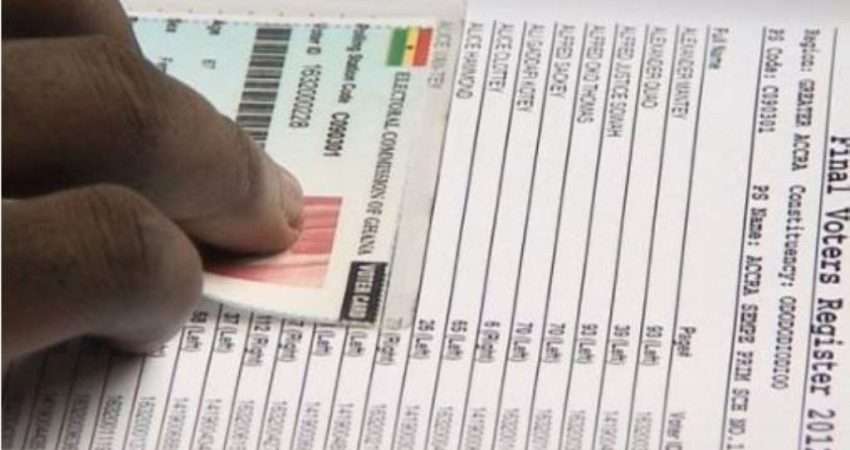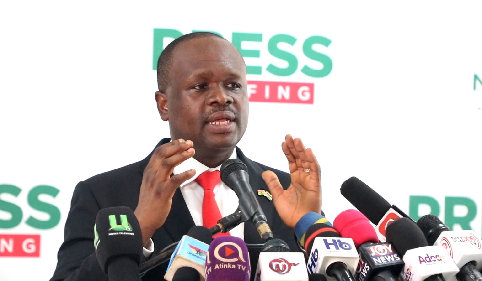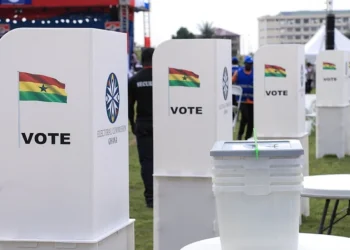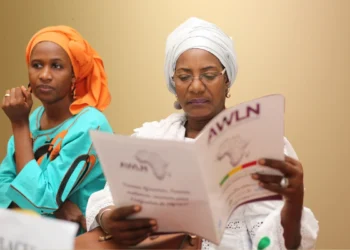As Ghana approaches its next general elections on December 7th, 2024, the role of the Electoral Commission (EC) becomes ever more crucial in ensuring the credibility of the process.
The Commission is tasked with organizing free, fair, and credible elections that reflect the people’s will.
Transparency is the cornerstone of this mission. It serves as the foundation for building trust, preventing conflict, ensuring accountability, and enhancing voter confidence.
Accordingly, Dr. Omane Boamah, the Director of Elections and IT for the NDC has emphasized the importance of addressing the ongoing disputes between the NDC and the Electoral Commission regarding the 2024 voter register.
He stated that it is in the public interest for the EC to allow media outlets to provide live coverage of the proceedings at the Inter-Party Advisory Committee (IPAC) meetings.
This, he argues, would ensure greater transparency and keep Ghanaian voters well-informed throughout the electoral process.
“The Electoral Commission (EC) has invited political parties to a crucial IPAC meeting tomorrow, Tuesday, 1st October 2024, to discuss the 2024 voters register.
“The live broadcast will provide Ghanaians with real-time and unbiased information on the state of the 2024 voters register after the EC’s so-called self-audit or autocorrection of their avoidable (criminal) errors and mistakes”.
Dr. Omane Boamah
Dr. Omane Boamah further argued that live media coverage of the IPAC meetings would not only enhance transparency but also serve as a critical tool in eliminating misinformation and misrepresentation.
He indicated that by allowing the media to broadcast the proceedings in real-time, the public would have direct access to the discussions and decisions made, thereby preventing any distortion of facts or selective reporting.
This level of openness, he contended, would ensure that all stakeholders, including political parties and the general public, receive accurate and unfiltered information, ultimately fostering trust in the electoral process.
Forensic Audit Demand Beyond IPAC Scope
Furthermore, Dr. Omane Boamah emphasized that the NDC’s demand for a forensic audit of the voters’ register and its associated IT system cannot be comprehensively addressed within the scope of the Inter-Party Advisory Committee (IPAC) meetings.
A forensic audit, he argued, involves in-depth analysis of data security, system vulnerabilities, and potential irregularities, which go beyond the discussions that typically occur at IPAC.

“The truth is, #EAGLEEYES intercepted information shows as at yesterday, the Electoral Commission was still struggling to resolve voters whose names are still missing from the voters register. The problem is more than meets the eye”.
Dr. Omane Boamah
As such, Dr. Omane Boamah indicated that until the individuals responsible for deliberately manipulating voters’ data for electoral gain are identified and brought to justice, there remains a significant risk that the same errors or fraudulent activities could reoccur before the December 7, 2024 elections.
He stressed that without a thorough investigation to uncover those who tampered with the voters’ register, the electoral process remains vulnerable to further manipulation.
He urged the Electoral Commission and relevant authorities to take swift action to “smoke out” those responsible, as doing so would not only prevent future occurrences but also serve as a deterrent against electoral fraud.
Dr. Omane Boamah stated that such manipulation of voters’ data can have serious implications for the integrity of the voting process.
Specifically, he explained that it could result in Biometric Verification Devices (BVDs) being unable to verify certain selected voters, even if their names appear on the hard copies of the voters’ register.
This, he emphasized, would not only disenfranchise legitimate voters but could also create confusion and delays at polling stations on election day.
Dr. Boamah noted that the failure of the BVDs to authenticate voters due to data manipulation would undermine the credibility of the entire electoral process.
He stressed that this could potentially lead to unnecessary disputes and accusations of foul play, as voters whose biometrics do not match the system may be wrongfully excluded from voting.
READ ALSO: Thousands In Pakistan Protest Killing Of Hezbollah Leader




















